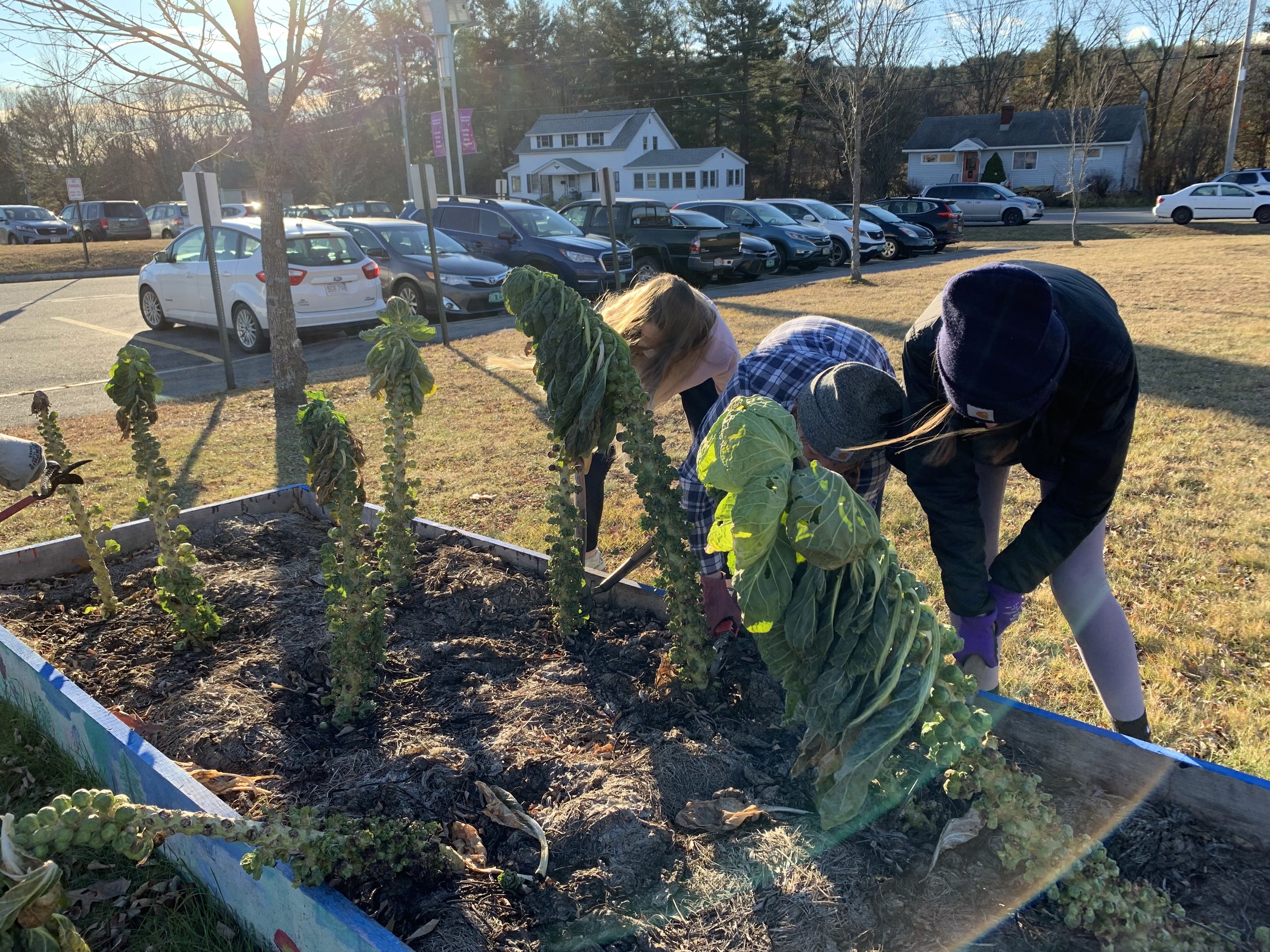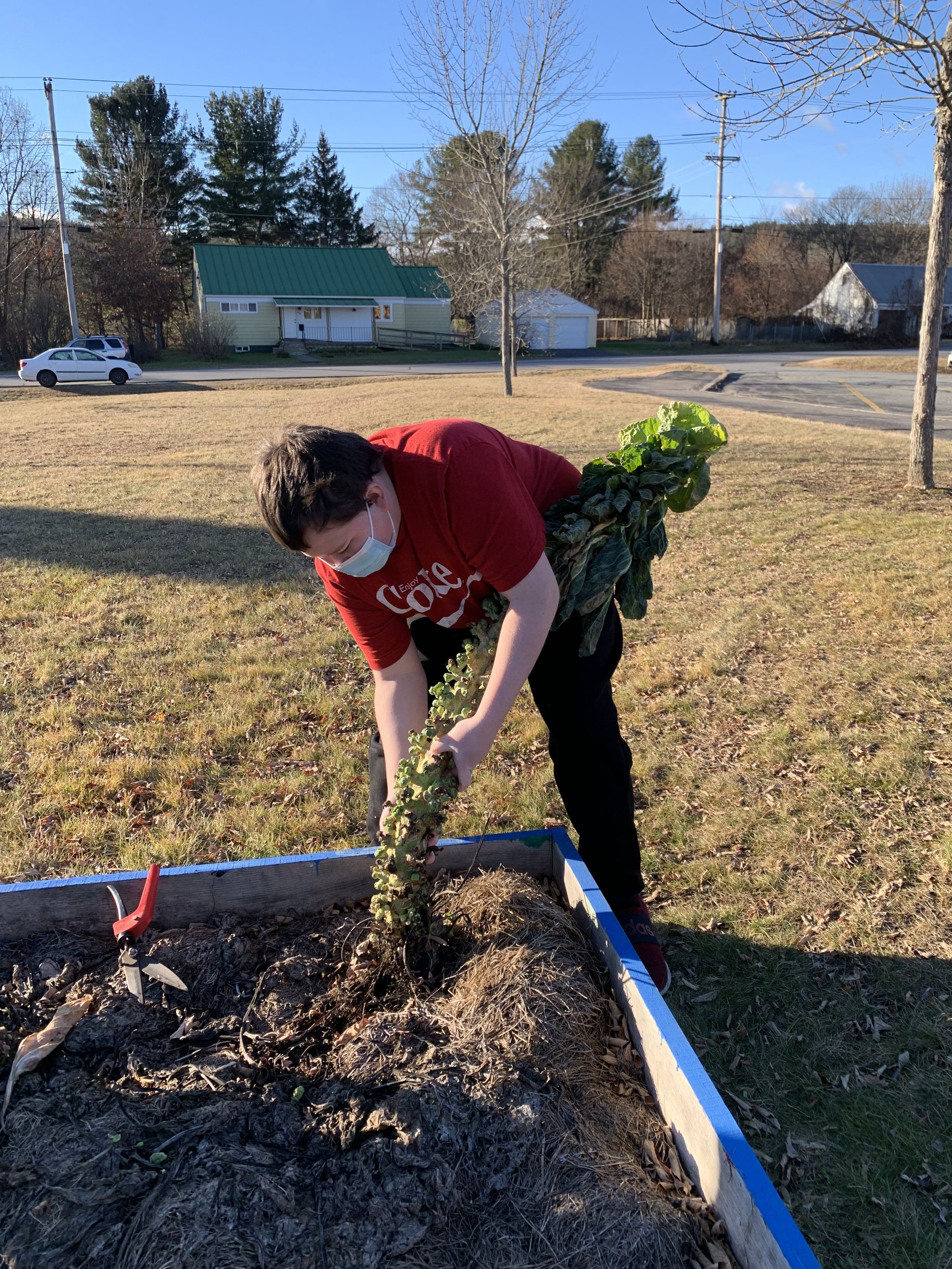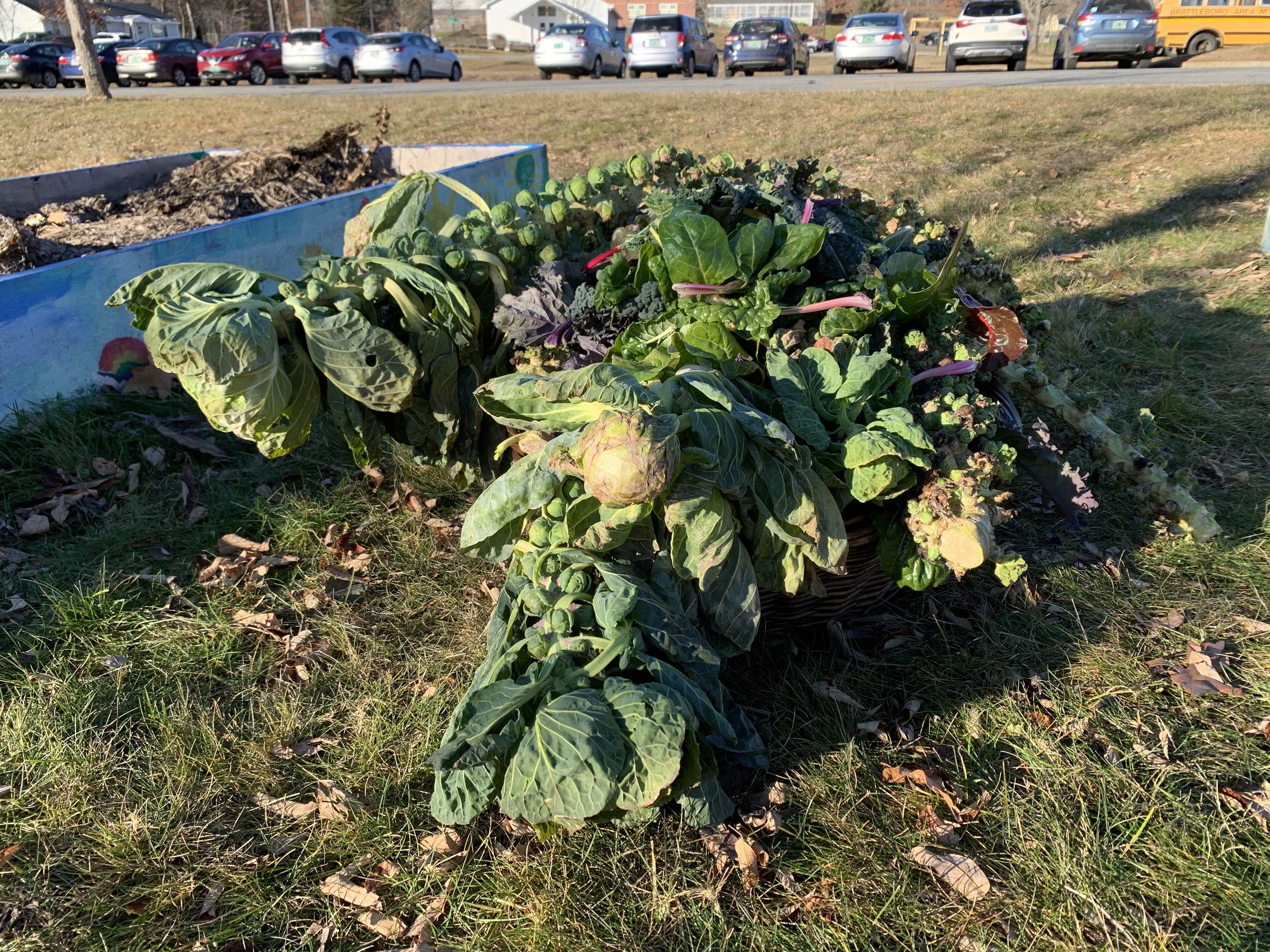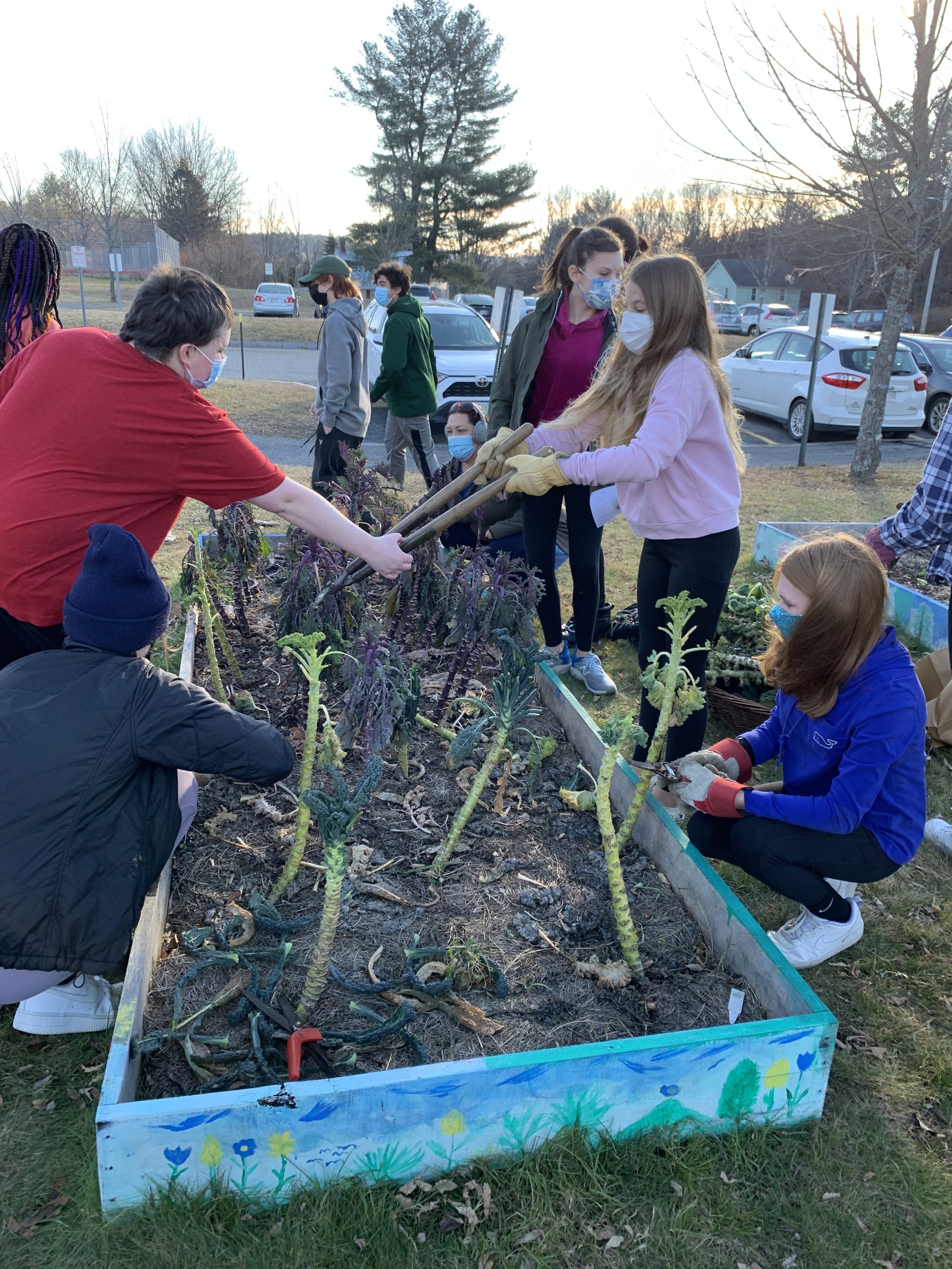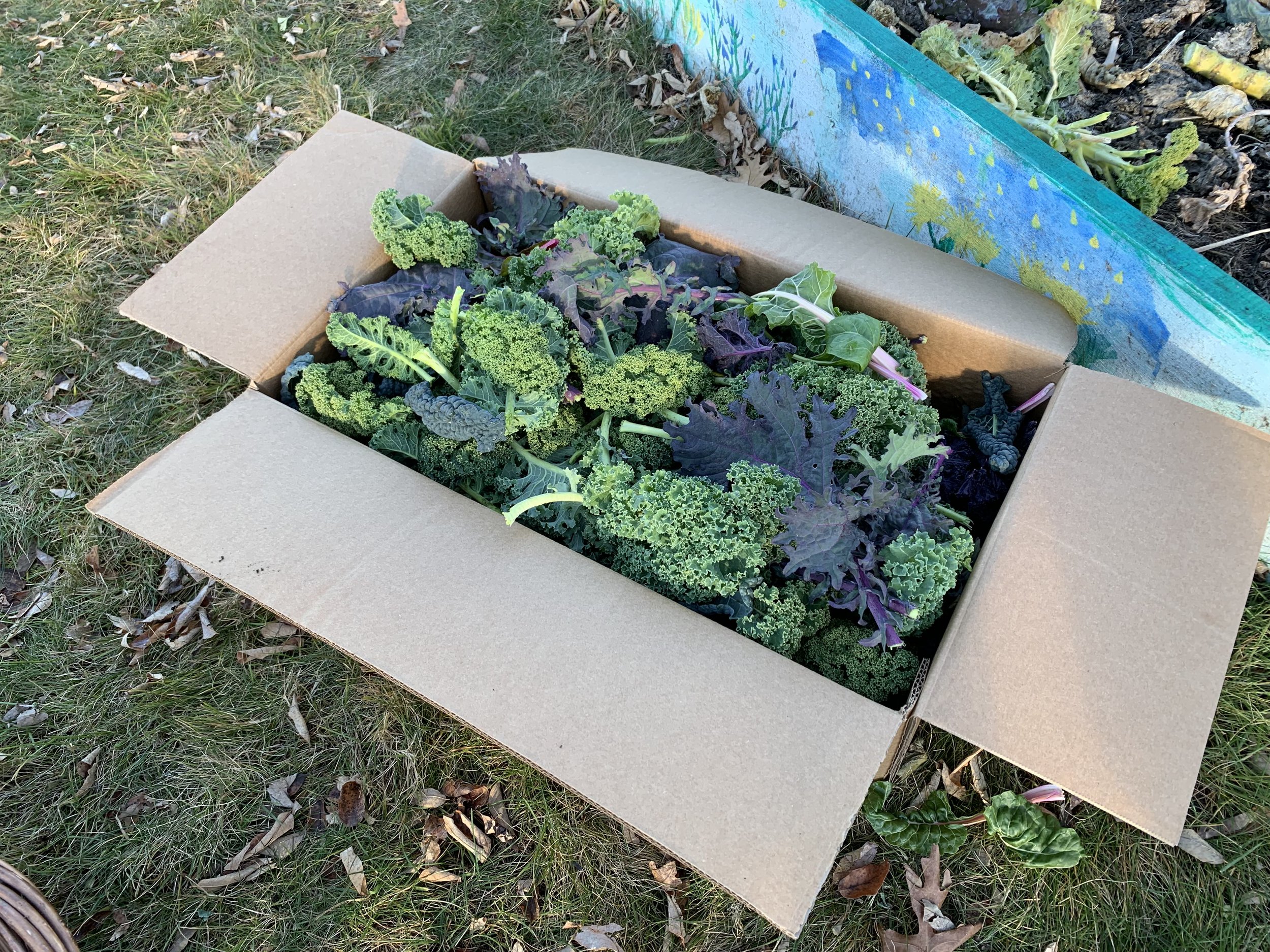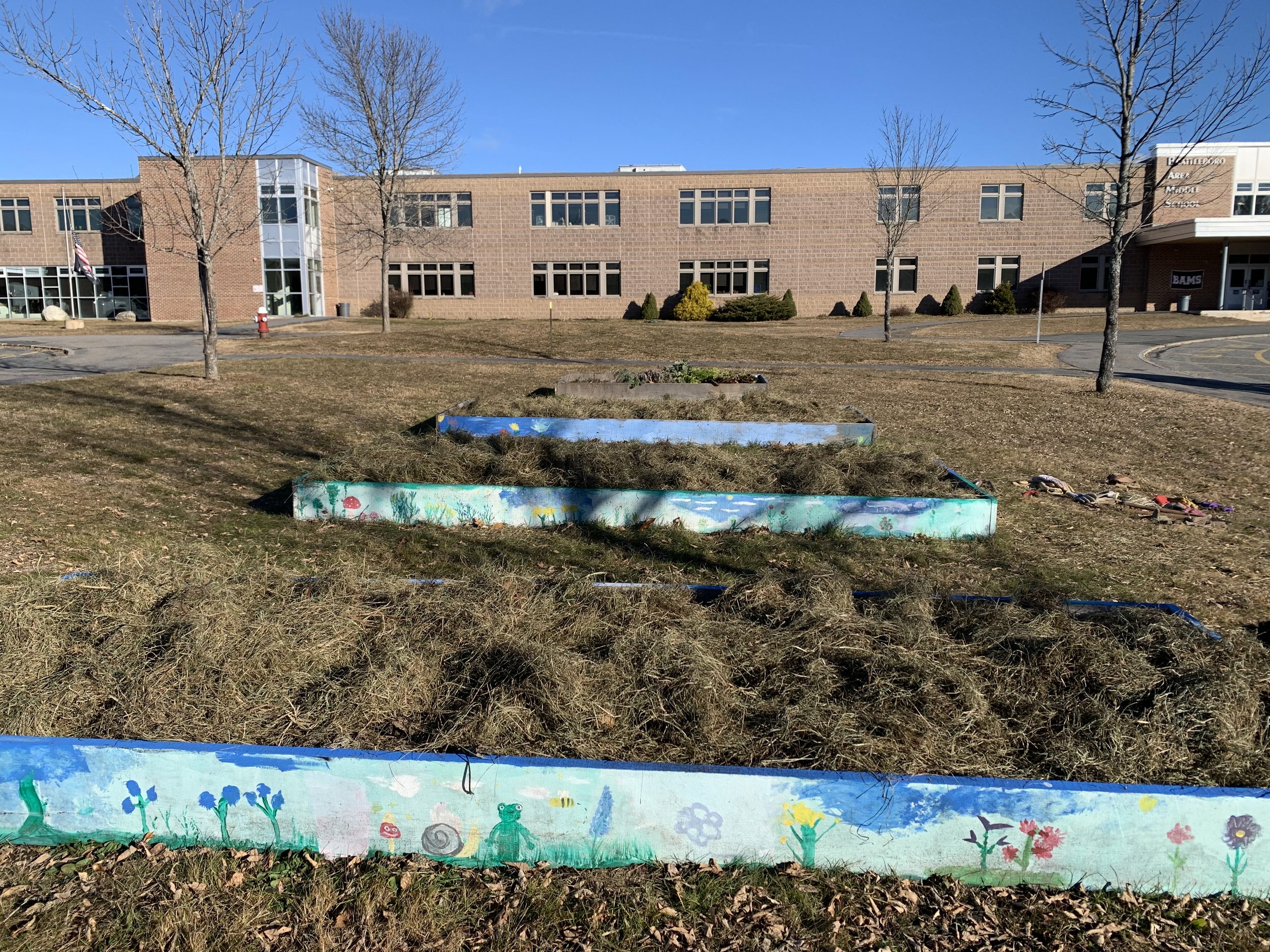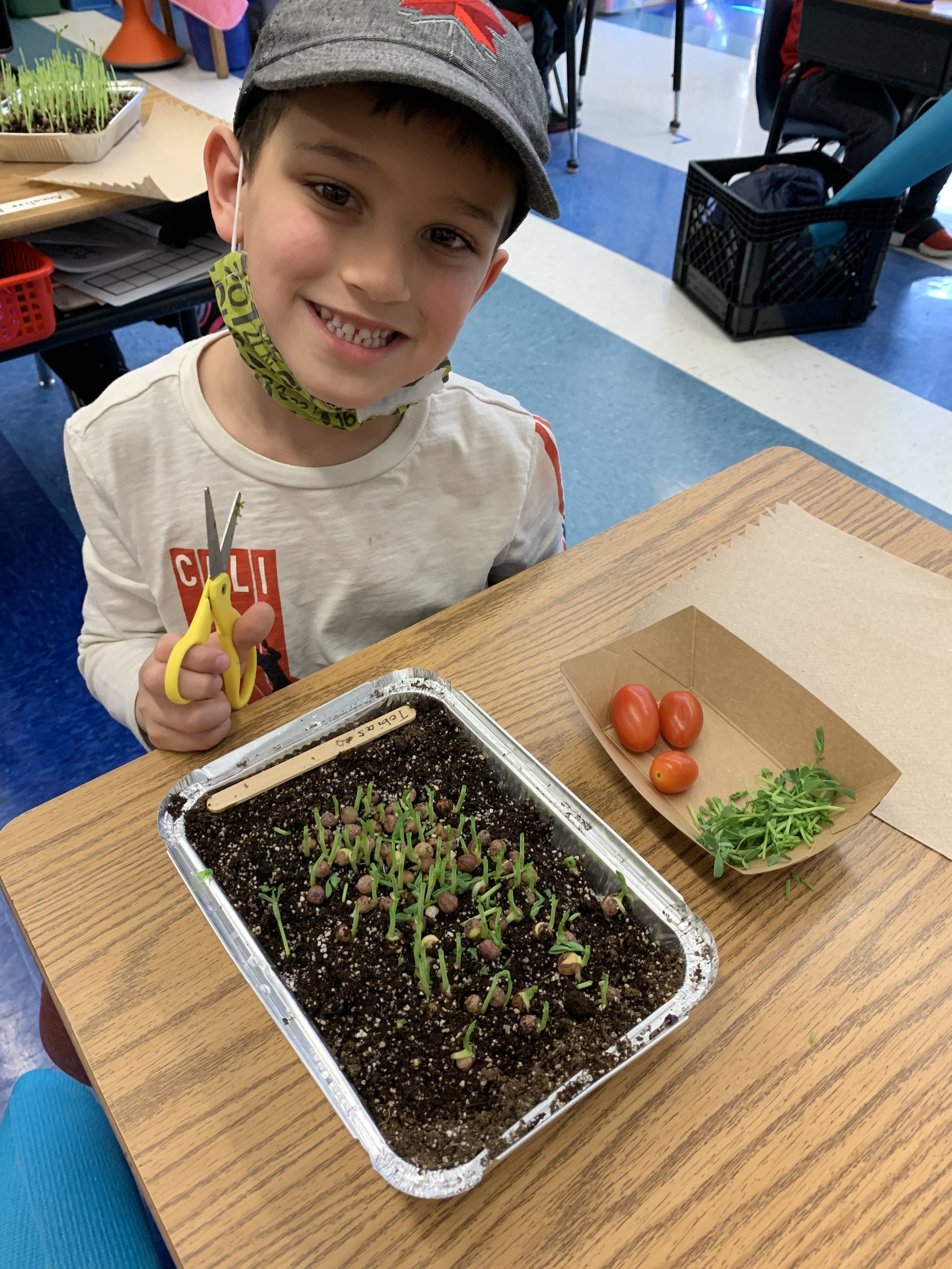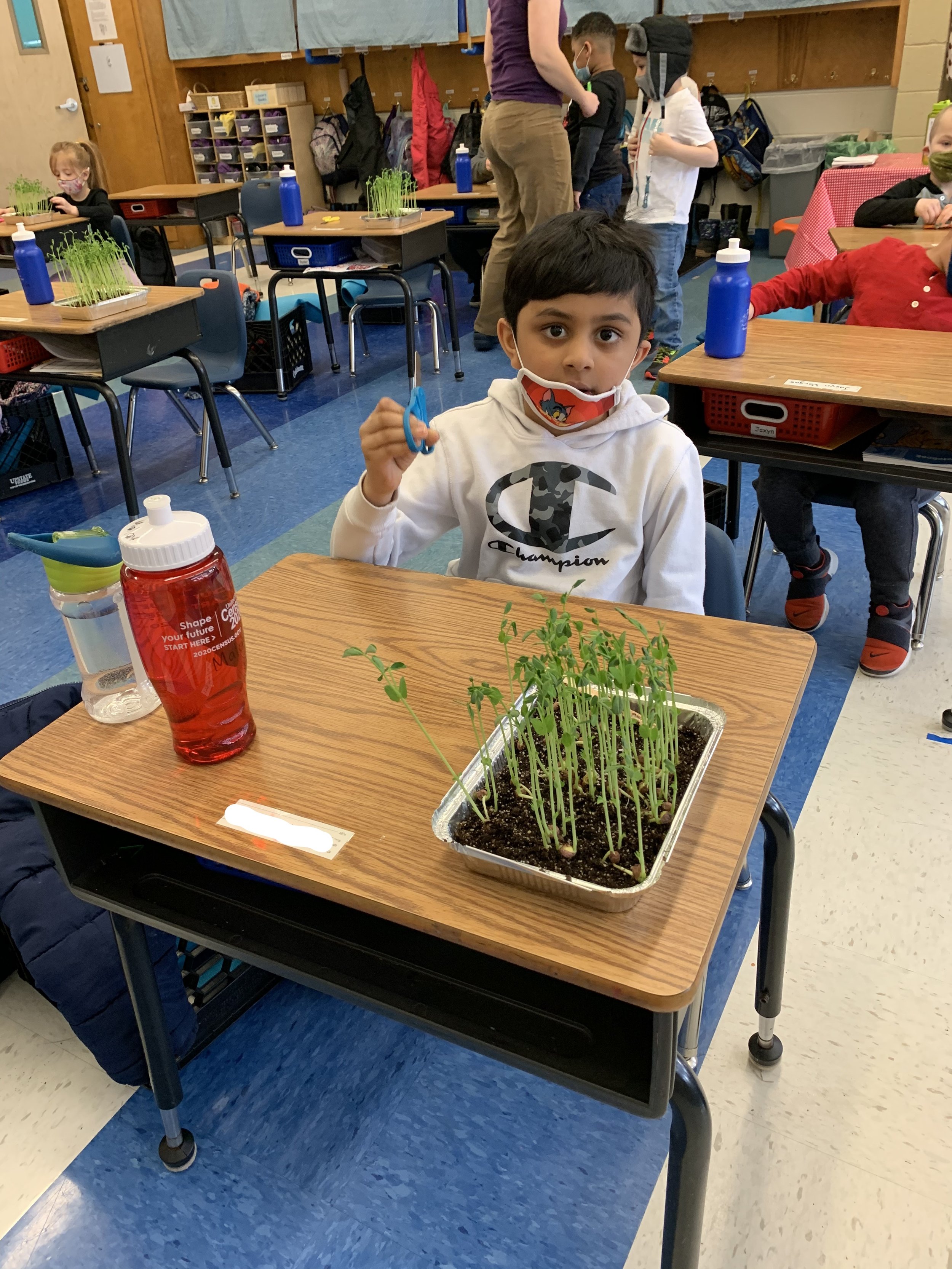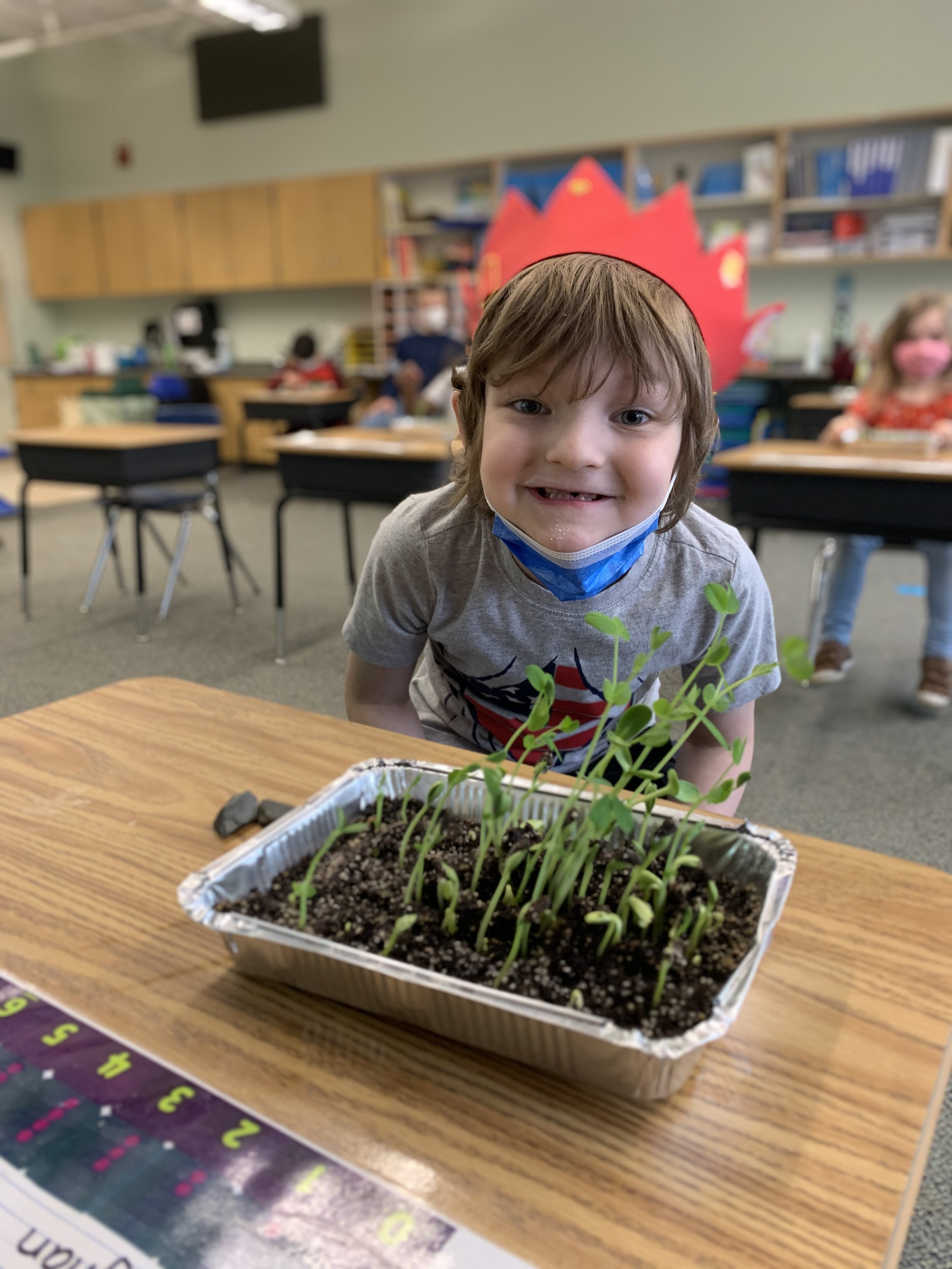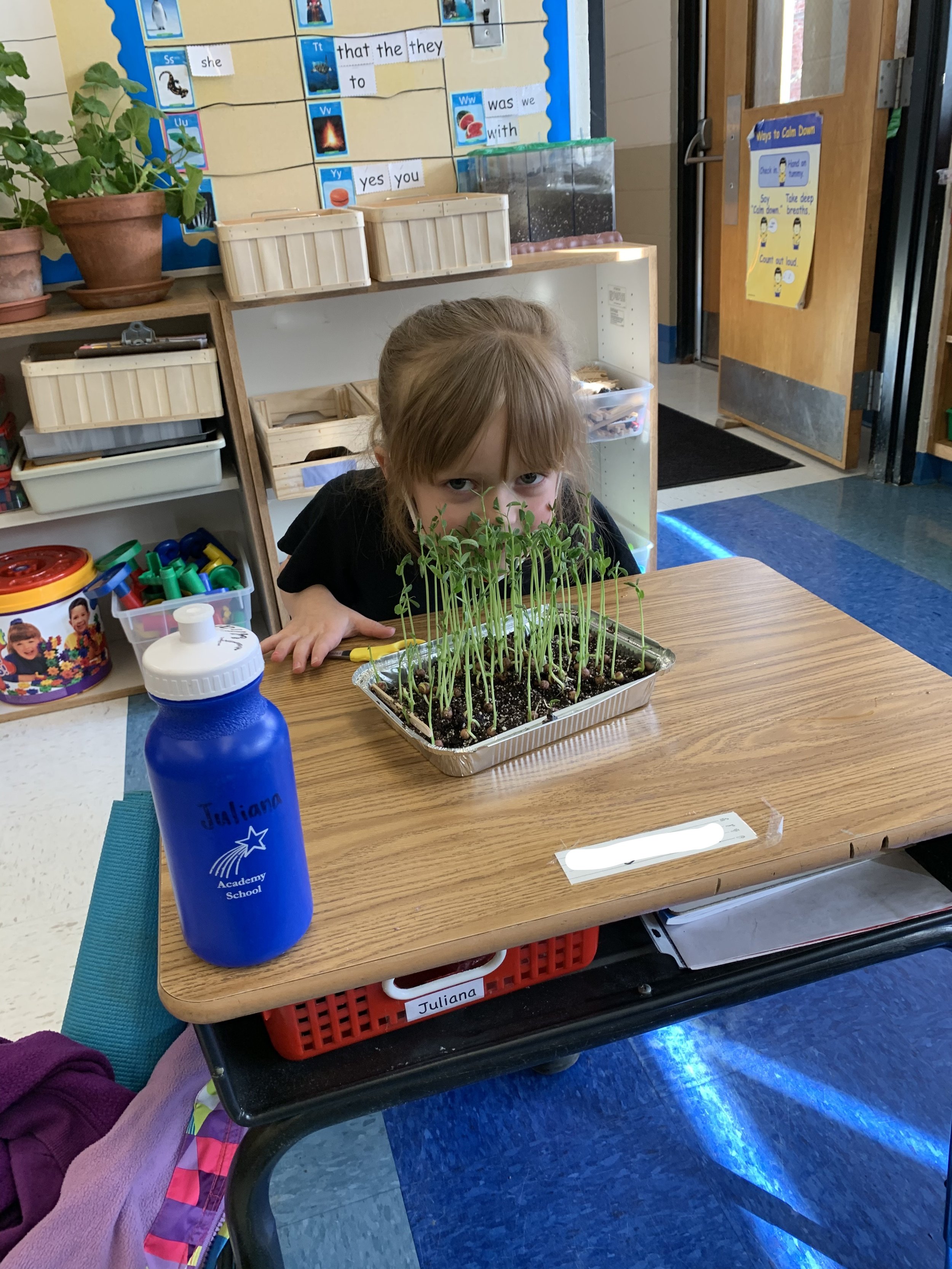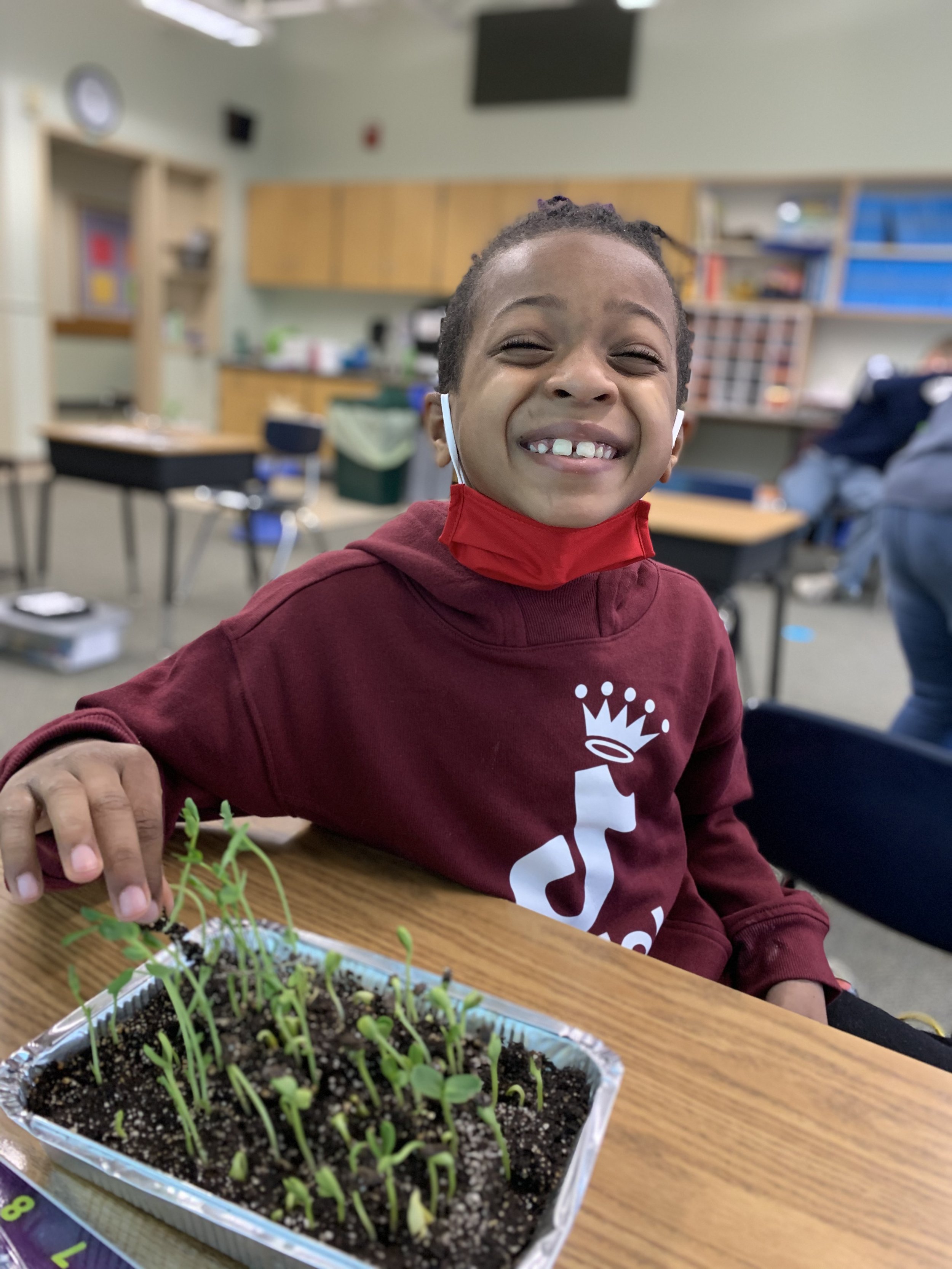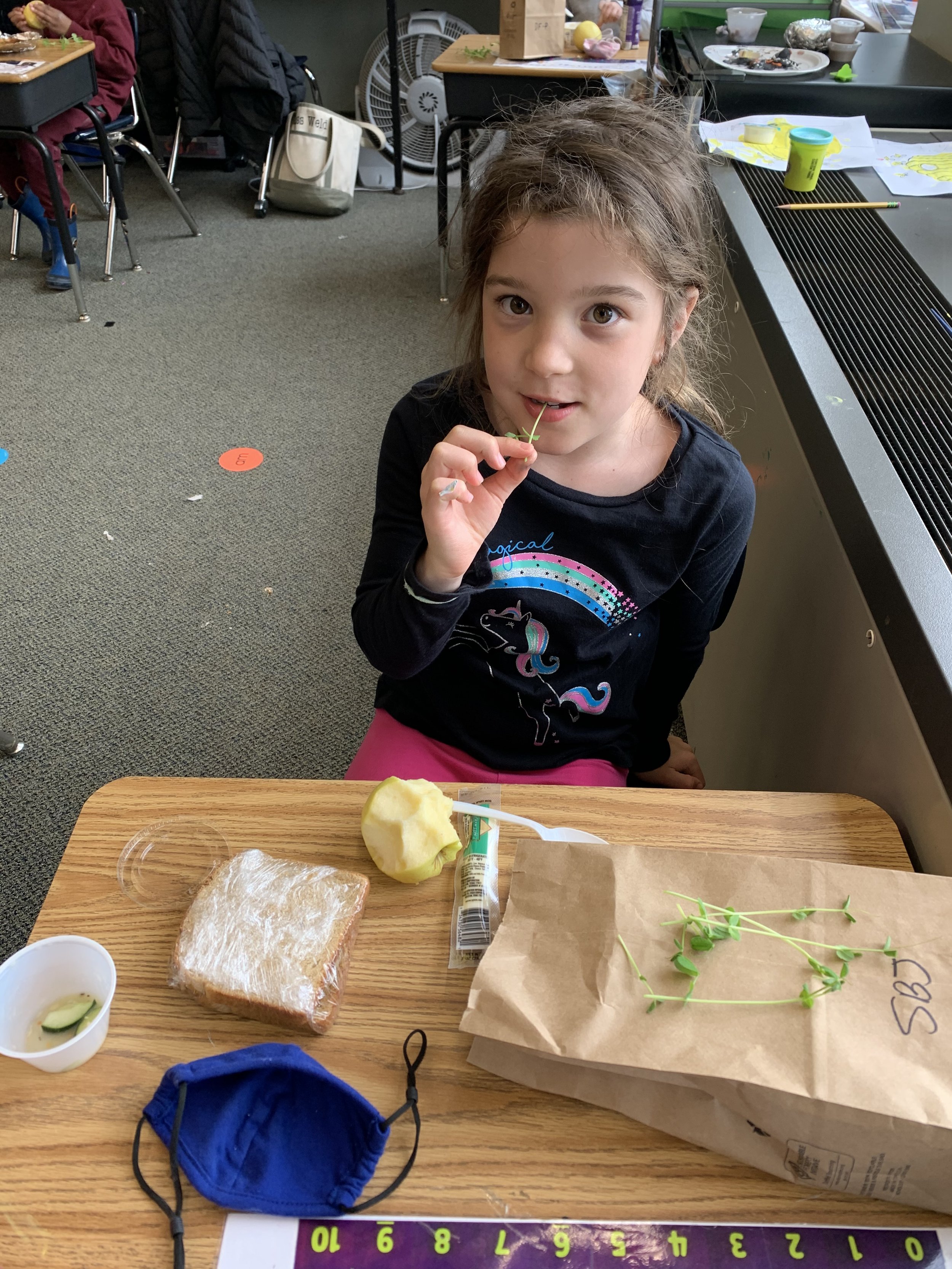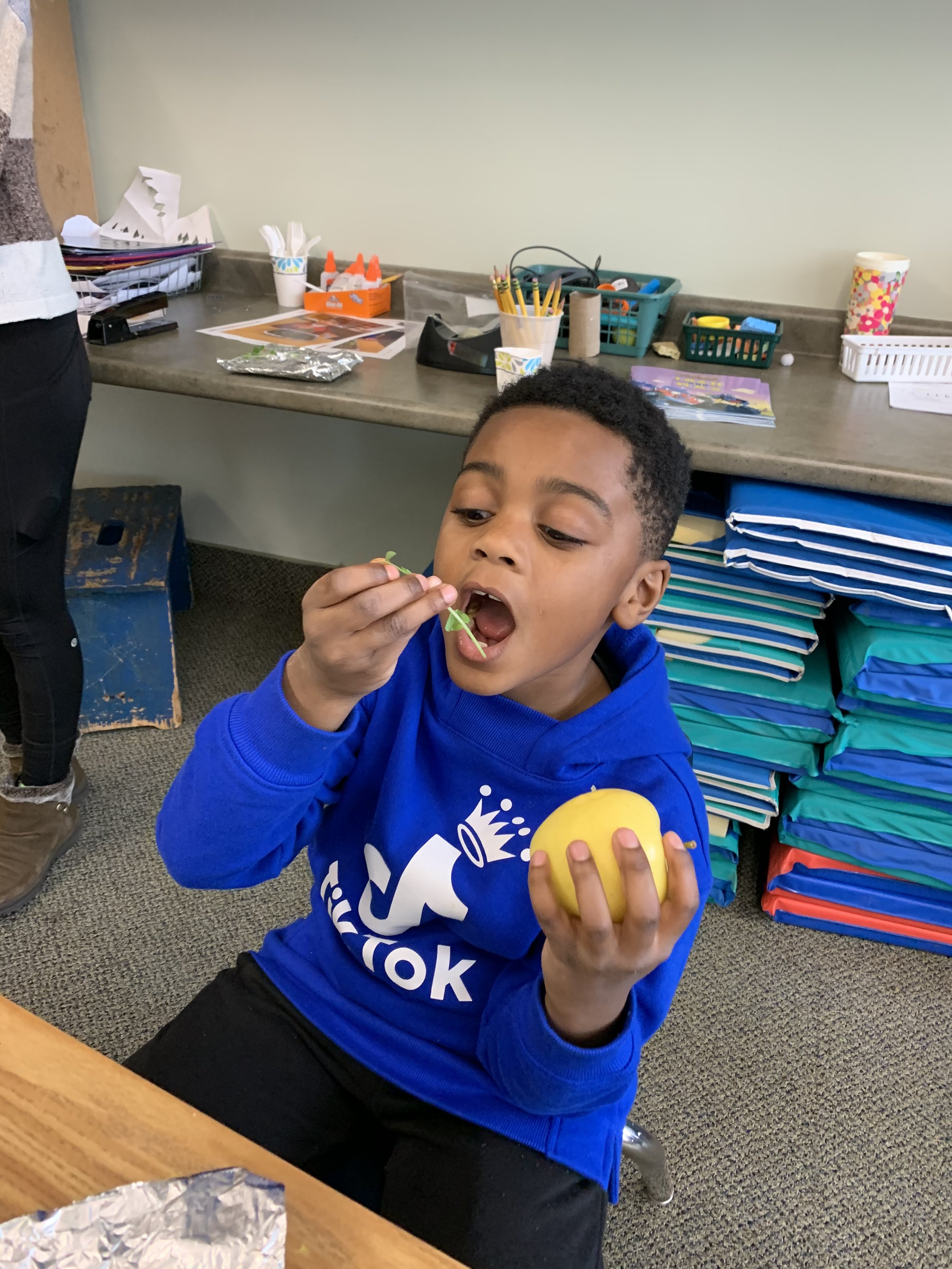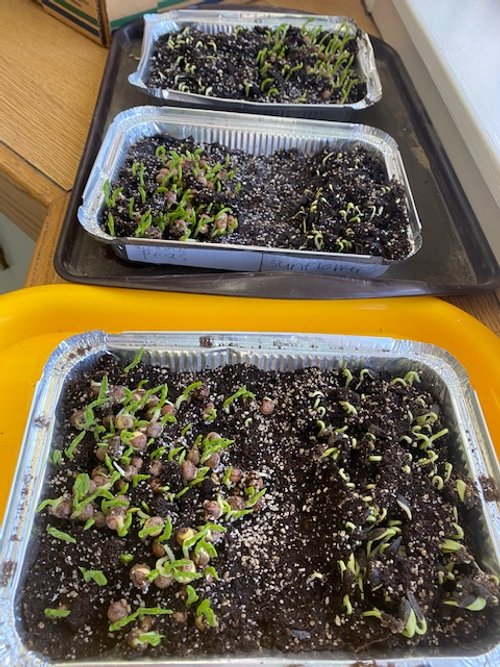On a chilly morning in early December, Food Connects staff joined a group of approximately 15 students and Brattleboro Area Middle School (BAMS) teacher Mandy Nash for the final garden harvest and to put the school garden to rest for the winter. These new garden beds, built in the spring of 2021, finished the season strong! They were a source of fresh herbs for the school cafeteria throughout the summer and fall. This final harvest included Brussels sprouts, kale, and swiss chard. Food Service Director and chef Ali West of Fresh Picks Cafe was eager to transform the produce into a harvest salad for BAMS students to enjoy in the school cafeteria at lunchtime.
Students rose to the challenge of using big loppers to chop through the thick stems of the brussels sprouts, and several students were very curious to see the tiny aphids who had infested several kale leaves. At the end of the harvest, the last step was covering the beds in local mulch hay donated by a BAMS family from Guilford.
Getting outside and doing hands-on garden work can be a rarity during the busy academic school day, and Food Connects was happy to provide the tools, resources, and support to help make this first harvest a success. BAMS is already thinking about spring planting in a few short months, and Ali West has requested more fresh herbs for her kitchen!



